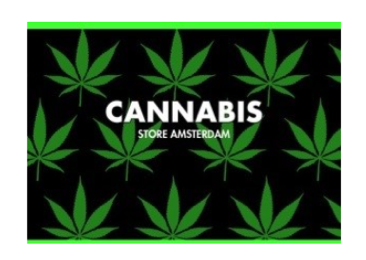On 19 December 2016 Ms. Santa Conte applied for the registration of the EU figurative trademark No 16.176.968 'CANNABIS STORE AMSTERDAM', for Classes 30 (bakery products, confectionery, chocolate and desserts, condiments, flavourings and seasonings, ice cream, frozen yoghurts and sorbets, and savoury pastries), 32 (non-alcoholic drinks, beer and its derivatives and preparations for the manufacture of drinks) and 43 (food and drink catering services) of the Nice Classification. The trademark consists of the following graphic representation:

By decision of 7 September 2017, the European Union Intellectual Property Office (EUIPO) rejected the mentioned application on the basis of Articles 7.1(b) and (c) and 7.2 of Regulation 2017/1001, due to the fact that the trademark was not distinctive or was indicative of the goods or services it covered. An appeal was lodged against that decision, which was also dismissed by the Board of Appeal, by decision of 31 August, on the ground that the sign was contrary to public policy (Article 7(1)(f)).
Ultimately, the applicant brought an action before the General Court of the European Union claiming that the EUIPO had failed to comply with their obligation/duty to examine the facts of their own motion under Article 95 of the Regulation.
Finally, the Seventh Chamber of the General Court of the European Union rejects the appeal in its Judgment of 12 December 2019 and confirms the decision issued by the EUIPO, refusing to register the trademark, on the understanding that:
(i) The trademark reproduces a stylised representation of the cannabis plant, which is the media symbol for marijuana (despite the applicant's claim that the symbol reproduced the cannabis plant and not the psychotropic product obtained from it called marijuana);
(ii) the word "AMSTERDAM" refers to the city's policy of tolerance towards the sale of narcotic drugs derived from cannabis, under certain circumstances (although the applicant claimed that AMSTERDAM could refer to the city known for its "coffee shops" or "space cakes");
(iii) The word "STORE" would lead consumers to expect that the products sold under the sign would correspond to those available in a shop selling narcotic substances; and
(iv) Finally, regarding with the public order, the General Court of the European Union considers that although the legalisation of cannabis for therapeutic and recreational purposes is being discussed throughout the EU, its use still being illegal in most of the EU Member States. Therefore, since the public concerned would perceive the sign as an indication that the foodstuffs and beverages sold with it contain narcotic substances which are illegal in many EU Member States, the contested mark was considered to be contrary to public policy.
